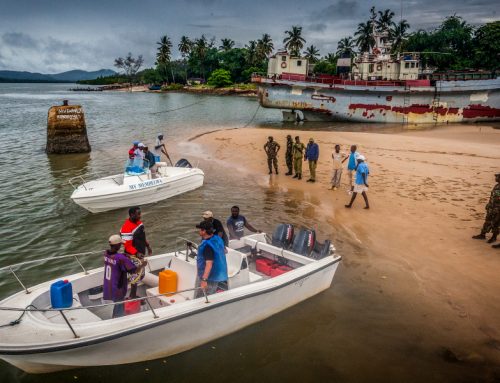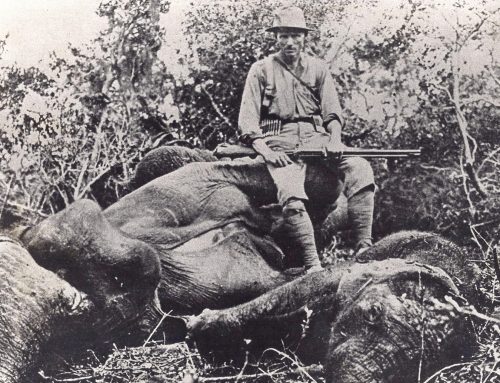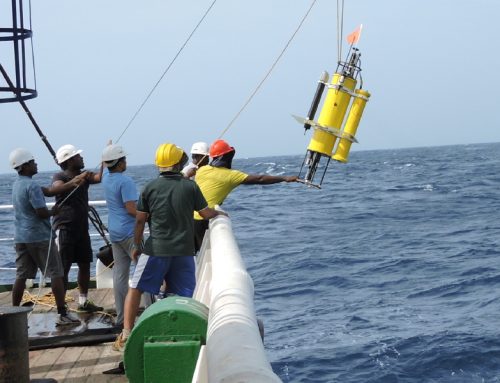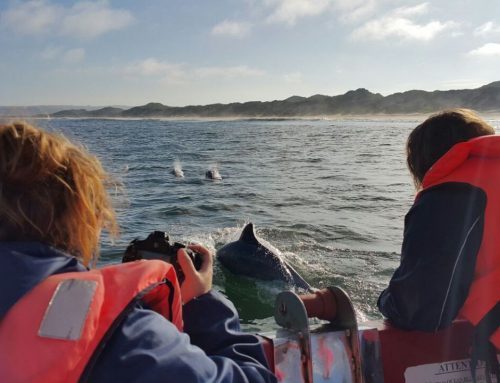 Someone is misstating the truth. That someone is soon to be identified because they are breaking the law. This came to light at a volatile meeting in the Karoo town of Middelburg on Friday where petroleum giant Shell together with Golder, the environmental consultancy hired by Shell, presented their draft Environmental Management Programme (EMP) to the people of the Karoo.
Someone is misstating the truth. That someone is soon to be identified because they are breaking the law. This came to light at a volatile meeting in the Karoo town of Middelburg on Friday where petroleum giant Shell together with Golder, the environmental consultancy hired by Shell, presented their draft Environmental Management Programme (EMP) to the people of the Karoo.
The EMP is a requirement for any exploration application made to the Petroleum Agency of SA (Pasa), a designated agent of the Minister of Energy. Shell is applying for three licences to explore for shale gas in a region extending over 90 000km2 in the Karoo.
Instead of being site specific and detailing where and how they intend to explore for shale gas, which is required of them by law, Shell/Golder did none of this and simply wrote in the draft EMP that Shell could choose to focus their exploration effort “anywhere within this area”.
They claimed Pasa had exempted them from the requirement in South Africa’s Mineral and Petroleum Resources Development Act (MPRDA), 2002, to provide site-specific detail. This claim was dispelled when Graaff-Reinet attorney Derek Light, who attended the meeting, placed on record that Pasa had no such authority to exempt anyone from the provisions of the Act.
Light is representing hundreds of landowners, farmers, businesses and organisations in the Karoo against Shell, including international business leader Johann Rupert and Princess Irene of the Netherlands.
In a letter to Light dated March 14, Pasa CEO Mthozami Xiphu confirmed: “We do not have the authority to exempt anyone from the requirements of the Act, and have not done so for anyone, including Shell.”
If the provisions of the Act are not complied with, the Minister of Energy will not grant the application. “Section 39 of the MPRDA stipulates that there can be no substitute for the actual environment (site locality) where an activity is intended, and the regulations specify a number of requirements, including certified copieace structures,” adds environmental consultant Fritz Bekker, employed by Derek Light on behalf of his clients.
“This is because the applications for exploration drilling by Shell will have highly site-specific consequences and site-specific impacts, which are important to the landowners, farmers or community members in those areas.”
Not only did Shell/Golder fail to include site-specific details, they failed to detail which chemical compounds they intend using in the Karoo in the highly controversial shale gas exploration and extraction method called hydraulic fracturing or “fracking”.
In the Karoo, this would mean drilling boreholes down 4km to 5km, followed by the introduction of a mixture of chemicals, sand and millions of litres of water under pressure to fracture the geological structures and force the flow of shale gas. The risk of water and soil contamination is a major concern.
Many of the chemicals used in fracking are known to be toxic and cancer causing, with severe implications for human and animal health and a potential to contaminate surface and ground water.
Shell/Golder’s draft EMP further fails to detail where they would source the one to six million litres of water required per well in the fracking process, especially considering that water is the semi-arid Karoo’s most treasured commodity.
Shell/Golder talks about 24 wells in the exploration process, but if production goes ahead, there could be wells every 1km to 5km, amounting to over 100 000 wells marring the Karoo landscape, which is what has happened in similar environments in the US. A single well pad could house 14 or more wells.
What is worrying the people of the Karoo is that Shell has plans to use the Karoo’s groundwater, despite their denial of this.
“Little or no research exists on the water and aquifer systems of the Karoo rocks from a depth of 300m to the exploration target depth of 4.5km,” says exploration geohydrologist Ahee Coetsee, who has also been employed by Derek Light attorneys.
To responsibly research and understand more about the aquifers and how they interrelate will require research projects of not less than five years.
What is of concern to the Karoo is that if Shell is granted the exploration right, they will suddenly announce they have found water below the 300m depth, and that they intend using it. Without sufficient research about the Karoo’s groundwater system, Shell/Golder cannot discount that the process of fracking at the depths they are describing could contaminate or decrease the yield of shallower aquifers used by farmers and towns in the Karoo.
Which is why it is no less than dumbfounding that Shell/Golder saw fit to declare in their draft EMP that most of the environmental impacts of their activities in the Karoo, including their impact on water, will be “low”. They are basing these declarations on completely fictional drilling sites and without sufficient knowledge of the water systems.
“How can Shell/Golder possibly declare a ‘low risk’ water rating when they cannot name the characteristics of the chemicals to be used during their drilling and fracturing process?” asks Coetsee. “It is well known that chemical spillages of, for example one litre, can pollute hundreds of millions of litres of water to a level which is unfit for human consumption.”
Shame on you, Shell.
Shell/Golder’s non-compliance on a range of counts offers a glimmer of hope for the people of the Karoo who are battling to protect their pristine environment from invasion by this global giant.
Shell has all the finances in the world to advance its aims, including placing a multitude of adverts in the media as to why Shell is such a caring company and why shale gas is a cleaner fossil fuel with a lower carbon footprint, which is scientifically inaccurate. The carbon footprint of shale gas production in the Karoo could far exceed that of coal.
While fighting off Shell, the people of the Karoo have also had to deal with preposterous, biased statements being made by certain, supposedly neutral, Pasa employees.
Last Thursday, Business Report reported that Pasa’s frontier geology manager, Jennifer Marot, had told MPs at a briefing of a joint meeting of the mineral resources and energy portfolio committees on the potential for shale gas extraction: “I believe… that it is unlikely that groundwater would be contaminated by the fracturing process.”
She could not be more wrong. There are hundreds of examples worldwide where groundwater has been contaminated by this process.
Marot further exposed her ignorance of groundwater contamination risks when she suggested that “salty water” from deep aquifers “or even acid mine drainage” might be usable in the fracking process.
It doesn’t take much intelligence to work out why it is the worst possible suggestion to dump Gauteng’s water pollution problems on the Karoo. Salty water is an equally toxic suggestion because should salty water contaminate the Karoo’s ground or surface water it would no longer be drinkable.
While Marot’s attitude needs to be taken to task, so too does Shell and Golder’s. At great expense they flew in a fleet of Shell executives from around the world to attend the meeting in Middelburg and other Karoo towns, with the sole purpose of glorifying fracking. One was Tony Cortis, once a South African who now lives in Quebec and is currently on contract for Shell fracking for shale gas in China.
“Why, when fracking has been banned in many regions in the developed world, are you still trying to dump it on the developing world?” a meeting attendee asked Cortis. In Cortis’ home province of Quebec a moratorium has been placed on fracking. Cortis’ answer was to avoid the question and instead elaborate on Shell’s technical prowess and infallibility in its fracking method.
“Can you 100 percent guarantee our water and environment will not be contaminated by Shell?” another enquired of Cortis. He could not.
Not one of the questions asked by any of the meeting’s attendees was satisfactorily answered. Shell and Golder have proved themselves masters of big talk and grand promises that few have the finances to expose.
A prime example is Shell’s many full-page adverts in the national and Karoo newspapers, where many promises are made. One reads: “Shell will provide full compensation to any landowner who can show evidence of a direct negative impact or loss on their land as a result of our activities.” It is signed by Bonang Mohale, Country Chairman, Shell SA. Perhaps Mohale can explain to the people of Midros township, Middelburg, precisely what steps they should take to show such direct evidence should their water be polluted by shale gas fracking since the whole of Middelburg, as is the case with all Karoo towns, is dependent on ground water.
“Shell has a $100 billion (R694bn) kitty to draw from, and you think that we have half a chance of proving, not just a negative impact, but a direct negative impact,” said Dr Peter Baker, a Richmond landowner who attended the meeting. He told Shell they should rather look to investing in solar energy in the Karoo since they have already invested in solar in other parts of the world.
It goes without saying that the list of people who have managed to take Shell or any other global company to court to prove “direct negative impact” is as short as the list of chemicals used in fracking is long.
“We are here today to stop Shell,” said Cosatu member and a senior nursing assistant from Middelburg Hospital, Linda Greeff. “We are the ones who will live with the sickness and consequences of fracking five or 10 years from now while they walk away with the profits. Our people have also heard the promises these companies make about jobs. Maybe there will be two or three, but mostly they bring in their own people.”
“As a Health and Safety Officer for Middelburg we cannot allow Shell to go ahead,” said James Plaag, also a Cosatu member. “The same nice speeches and pictures were shown to the people in America 10 years ago by the oil companies and now look at the disasters they sit with. We intend to take this further with Cosatu. From here onwards we will not be talking to Shell, we will be doing everything to stop them.”
Shell Golder’s application deadline for the submission of their EMP to Pasa is April 14. The minister is expected to make a decision during 2011 whether to award the initial three-year exploration right of an exploration right period that can extend to nine years.
“When regard is had to the lack of site-specific assessment and the generic approach to the EMP,” Light told the meeting “the conclusion is that it is irresponsible, if not reckless and all three applications that
Shell has submitted for the Karoo should be declined.”




